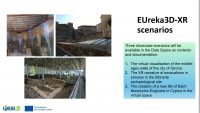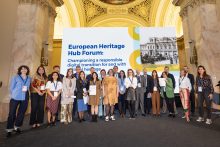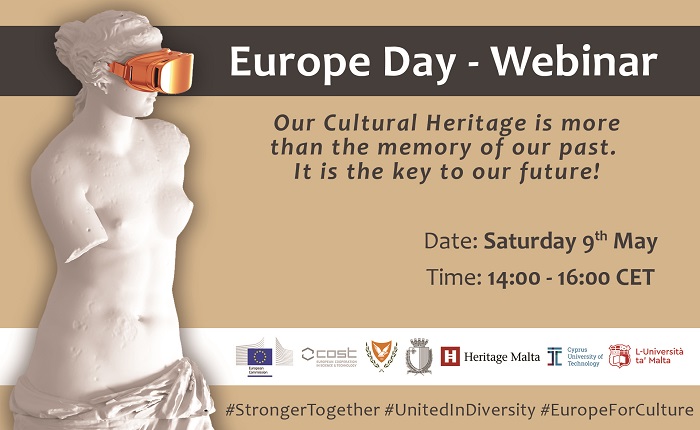 To commemorate this year’s Europe Day organised on the 9th of May a webinar dedicated to Digital Cultural Heritage is being organised.
To commemorate this year’s Europe Day organised on the 9th of May a webinar dedicated to Digital Cultural Heritage is being organised.
This webinar brings together two of the smallest island nations of the EU – Malta and Cyprus. These are the only EU members in the Mediterranean sea, physically cut off from the main continent with thousands of years of rich history and unique UNESCO listed world heritage sites. Both Mediterranean Islands have a lot in common, they are both committed to preserve and valorize their Cultural Heritage. The will present in this event outstanding and unique case studies from their national digitization programs and beyond.
A number of outstanding case studies (UNESCO WHL monuments) from Cyprus, Malta & Germany, as well as current research projects will be presented, which will take a very practical approach to the current and future challenges in Cultural Heritage.
Some of the topics being covered in this webinar include:
- the contribution of digitization in the preservation, interpretation and valorization of Cultural Heritage.
- the achievements in Cultural Heritage digitization in each of these two nations.
- the current challenges being faced by cultural Heritage due to the COVID19 pandemic.
- ways how Cultural Heritage can push a regeneration of the tourism sector.
- the way forward in terms of harnessing the digital potential in Cultural Heritage and collaboration on an EU level.
Speakers from the European Commission, EC representation in Cyprus, European Cooperation in Science and Technology (COST), Ministry of Education and Culture of Cyprus and the Ministry of Culture Malta, Heritage Malta, the UNESCO Chair and ERA Chair at the Cyprus University of Technology, the University of Malta a Maltese member of the European Parliament will actively participate in this webinar.
Free registration: https://cutt.ly/Ryk8nja


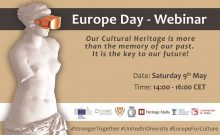

 The Ars Electronica Center of Linz (Austria) offers to people a weekly programme for attending at performances, concerts, exhibitions from their homes, just connecting at
The Ars Electronica Center of Linz (Austria) offers to people a weekly programme for attending at performances, concerts, exhibitions from their homes, just connecting at 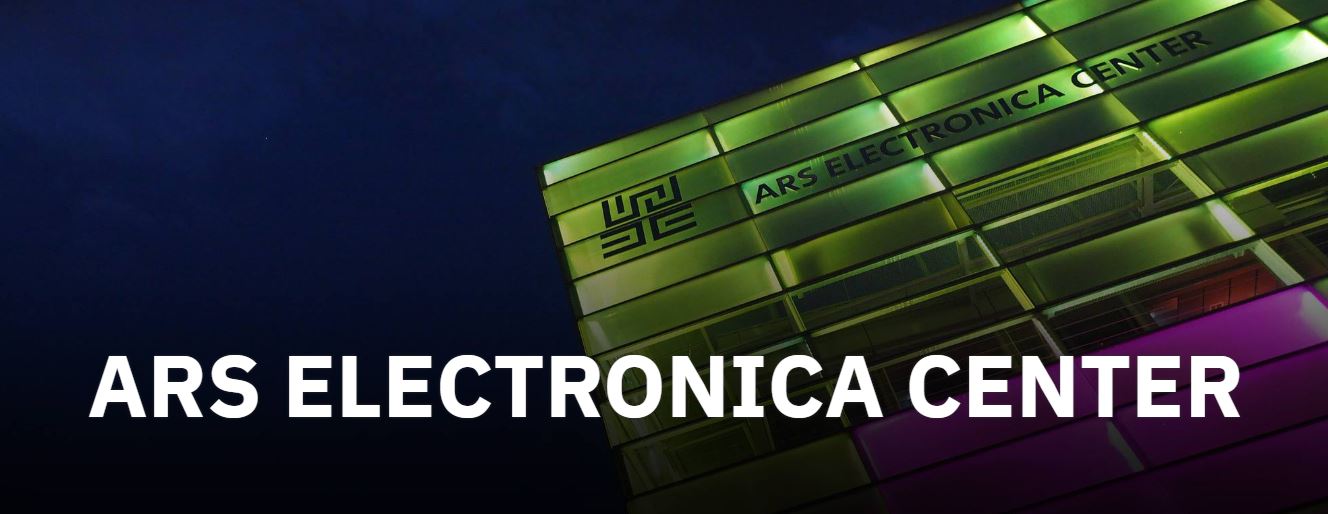 Challenge:
Challenge:
 COVID-19 pandemic particularly affected the cultural and cultural heritage sectors with travel bans, public closures and event cancellations with alarming financial implications.
COVID-19 pandemic particularly affected the cultural and cultural heritage sectors with travel bans, public closures and event cancellations with alarming financial implications.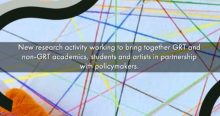
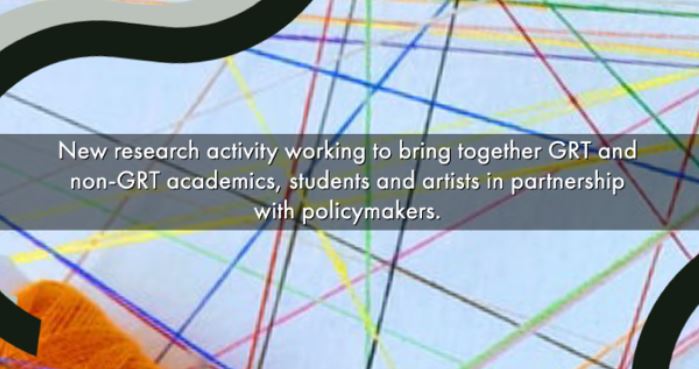 The project, carried out by
The project, carried out by 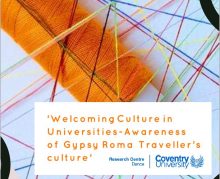
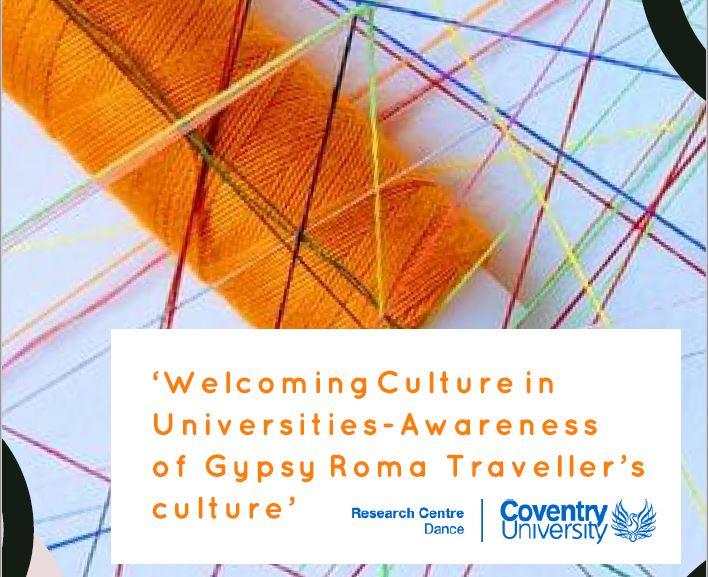 The Gypsy Roma Traveller in Higher Education- Influencing Policy is a research project concluded the 31st March 2020 and funded by QR Strategic Priorities Fund 2019-20 and
The Gypsy Roma Traveller in Higher Education- Influencing Policy is a research project concluded the 31st March 2020 and funded by QR Strategic Priorities Fund 2019-20 and 

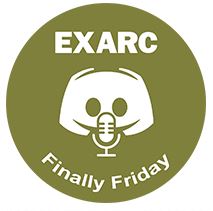
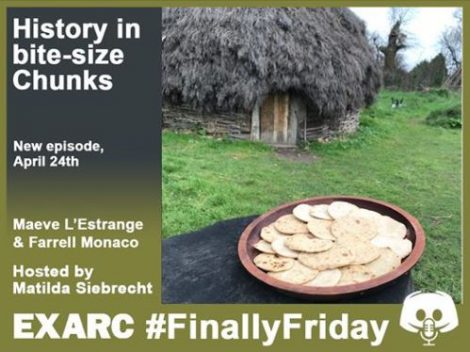 The title was: History in bite-size Chunks.
The title was: History in bite-size Chunks.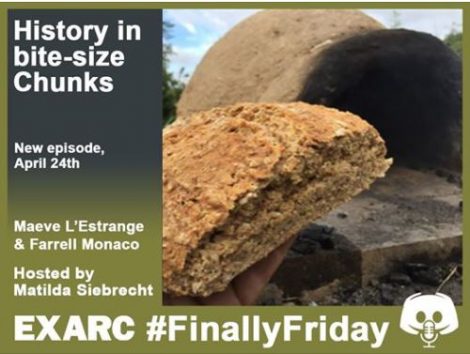
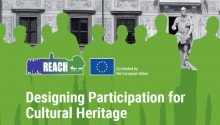
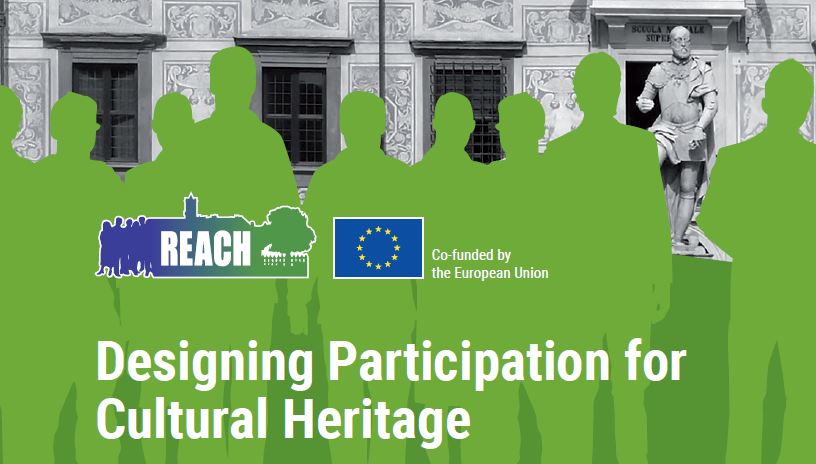 In light of the interest received by the initiative,the REACH Consortium have decided to keep the call open until the end of the year.
In light of the interest received by the initiative,the REACH Consortium have decided to keep the call open until the end of the year.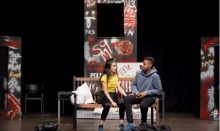
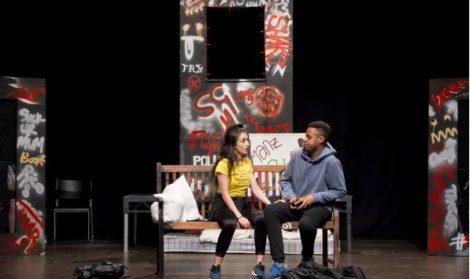 The 30th
The 30th  If you have interesting news and events to point out in the field of digital cultural heritage, we are waiting for your contribution.
If you have interesting news and events to point out in the field of digital cultural heritage, we are waiting for your contribution.





























